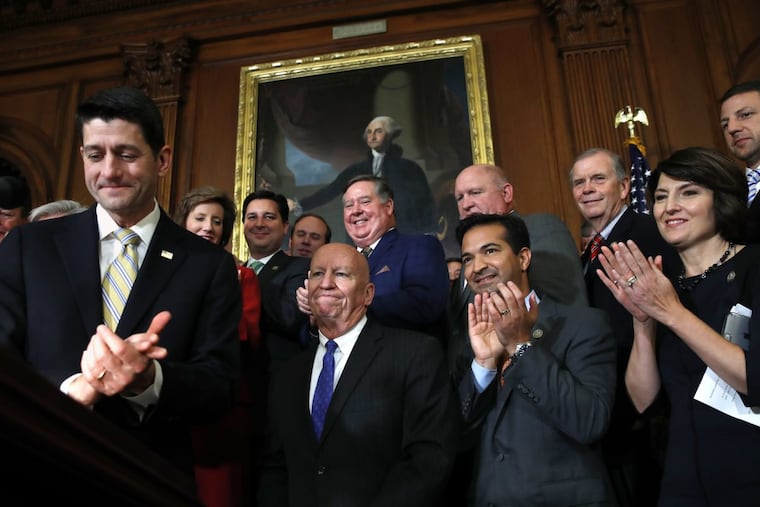Why the Republicans' magical tax plan needs to disappear | Editorial
The tax reform bill drafted by so-called fiscal conservatives in five years would increase the national debt to almost 100 percent of the gross national product.

Washington politics has become a theatrical performance by an assortment of magicians who rarely say what they mean and even less seldom mean what they say. In their slippery hands is the fate of a nation too distracted by sideshows starring President Trump to pay proper attention to what the politicians are trying to hide.
The latest legerdemain has put before Congress a tax reform bill drafted by so-called fiscal conservatives that in five years would increase the national debt to almost 100 percent of the gross national product. Not to worry, say the bill's Republican crafters, who promise that proposed corporate tax cuts will pay for themselves by creating jobs to boost the economy.
That assertion is disputed by one of the country's leading conservative economists, Harvard professor Nicholas Gregory Mankiw, a registered Republican. "Tax cuts rarely pay for themselves," Mankiw said. "My reading of academic literature leads me to believe that about one-third of the cost of a typical tax cut is recouped with faster economic growth."
The GOP plan would cut the corporate tax rate from 35 percent to 20 percent and repeal the alternative minimum tax and the estate tax, further lowering the bills of wealthy taxpayers. While those breaks would come with no strings attached, rate reductions proposed for individual taxpayers would cost them almost all itemized deductions, including for state and local taxes.
The Republicans' urgency to cut taxes is based on the lie that we live in the highest-taxed country in the world. The United States last year raised the equivalent of 26.2 percent of its gross domestic product through taxation, which ranked it 31 out of the 35 members of the Organization for Economic Cooperation and Development. Only Turkey, Ireland, Chile, and Mexico taxed less.
That may not matter to most U.S. taxpayers, who are hungry for any relief when it comes to sharing their hard-earned pay with Uncle Sam. But in their zeal to pay less, taxpayers must be mindful of the Republican plan's "now you see it, now you don't" qualities. Unlike the corporate tax reductions, most of the legislation's tax breaks for individuals will expire by 2025.
"We have every expectation that down the road, Congress will extend them," said Treasury Secretary Steven Mnuchin. But an "expectation" is what the audience has when a magician starts doing card tricks. It thinks it knows what he is doing, but almost always is surprised by how the stunt ends. That's fine for show business, but it's the wrong approach for tax reform.
Who would have thought that the party once synonymous with fiscal responsibility would propose a smoke-and-mirrors tax bill that could push the annual deficit to $1 trillion in five years? The Republican Party in trying to chart the best path for it to survive the Trump presidency has developed amnesia. It no longer recognizes the fiscally prudent course.
That means it is more important than ever for Americans to let their representatives and senators know they won't be treated like a gullible magic show audience. Tell them they will pay at the polls if they pass a tax bill that favors the wealthy at the expense of the middle class while putting the country even deeper in debt.